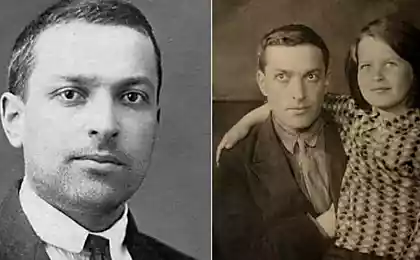165
The Five Rules of Dutch Education
The happiest children live in the Netherlands! At least that is the conclusion of UNICEF experts. And the main part of this happiness is not due to the lack of “home” or the ability to play anywhere and anytime, but to a healthy atmosphere in the family and the emotional well-being of parents. The Dutch approach to parenting differs from the usual principles, and mothers there are always calm and balanced. You want to know what the secret is?
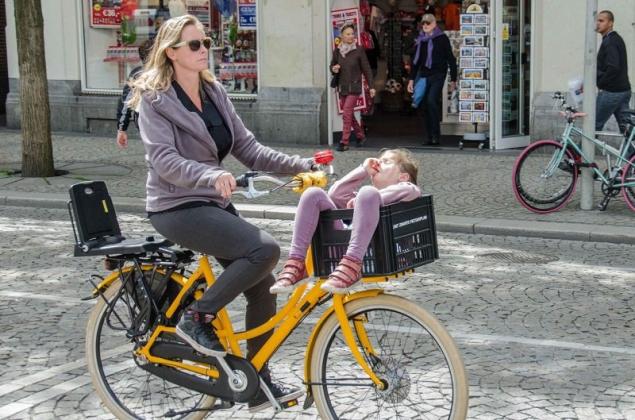
Having heard about the education of children in the Netherlands, the editorial board "Site" I am convinced that the Dutch really know. How to Raise a Happy ChildHealthy and successful! These golden principles of education should be learned without fail.
Principles of parenting
After reading this material, most people will have quite a healthy claim that the Netherlands has a completely different level of life and much more opportunities. Yes, it is. But if society has a clearly articulated goal, there will be a desire to defend it. While the domestic mother sacrifices herself and calms down with expensive diapers, she will not receive any new opportunities.
Be sure to share your views on Dutch education in the comments!

Having heard about the education of children in the Netherlands, the editorial board "Site" I am convinced that the Dutch really know. How to Raise a Happy ChildHealthy and successful! These golden principles of education should be learned without fail.
Principles of parenting
- Don't sacrifice yourself.
“Children don’t change life, they complement it.” Perhaps this is the main principle that entails all subsequent. We have a woman who is simply obliged to engage in self-sacrifice, pay for her career, family and necessarily youth and beauty for motherhood. And later, when the screaming baby grows up, be sure to remind him of the sacrifices his birth and upbringing cost, so that he does not accidentally get bored without an endless sense of guilt and duty to exhausted parents.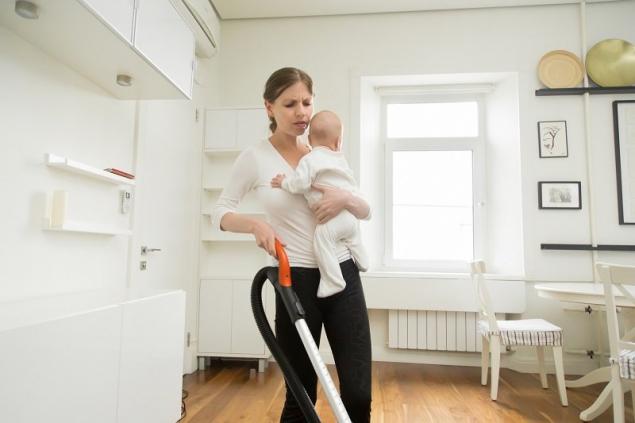
DepositPhotos
Dutch mothers, on the contrary, do everything possible to ensure that their lives are complete and harmonious without any sacrifices. Moms work, meet friends and find time for any interests and hobbies that were in their lives before the birth of the child. In the Netherlands, having a child does not turn a family into a suffering organism that revolves around an endlessly roaring “bundle of happiness.”
Instead of constantly complaining about exhausting cleaning and cooking - a washing machine, a robot vacuum cleaner and pre-prepared products bought at the supermarket. Instead of stupid walks around the yard in order to put the child to sleep – a joint trip on business, instead of three years of decree – a kindergarten, in which they take the youngest.
But most importantly, There's no "I'm the mother."There is only a family in which the father does not consider replacing diapers on the child or washing dishes as something that degrades his manhood.
DepositPhotos - Don't feel guilty.
A mother who sacrifices is used to beating herself up on any occasion: she put a hat on her baby or stopped breastfeeding too soon. In the Netherlands, society tells you, “Put an oxygen mask on yourself first, and then on the baby.” And no guilt! The child does not need an exhausted and nervous mother. To be a really good mother and at the same time remain a person, a person, you need a huge emotional resource, which can not be obtained from guilt.
DepositPhotos - Don't dwell on things.
The softest Japanese diapers, hypoallergenic napkins and extraneous shampoos are not necessary for the child. The mother needs them only so that she can realize that she gives the child only the best, which means that she is a good mother. Practical residents of the Netherlands it seems very stupid to spend money on what the child will grow up in a month or two. In Amsterdam, the culture of second hand and sharing is considered normal. For example, there are special playrooms for children throughout the city, where you can borrow any toys for a while, like books in the library.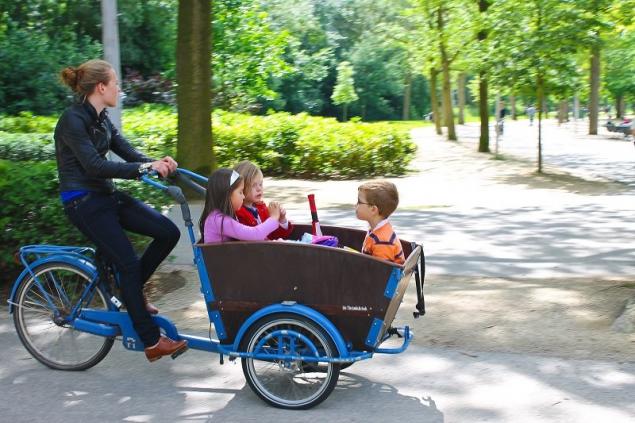
DepositPhotos - The natural course of things is good!
Dutch children play all their free time, because it is in the game that the little person knows the world best. At home, on the street, in school, in a restaurant, in any weather, in the sand and mud - the Dutch kid plays whenever he wants. Dutch mothers carelessly take children with snot to kindergarten, treat colds with paracetamol and do not buy hard shoes as soon as the baby begins to walk. Looking at all this, the shocked domestic mother will immediately want to wrap, heal and scold the child, because it is very difficult for us to accept this natural course of things. But if you choose between the natural environment and the greenhouse, isn't it? better to choose the first?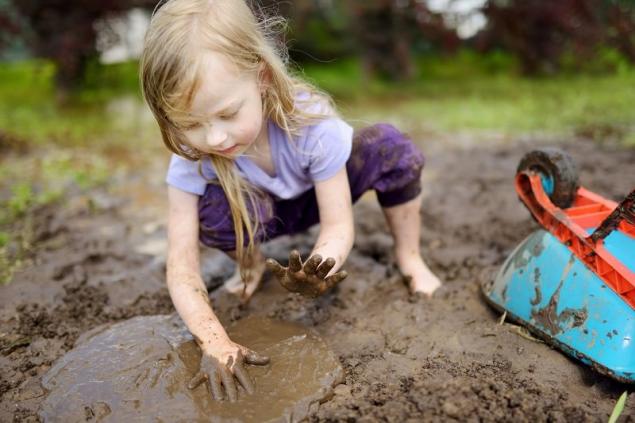
DepositPhotos - Take the child as he is.
It seems like this, because every parent loves their child. But there is a significant difference between love and acceptance - every loving parent has a stable concept of how his offspring should grow. But the baby is not a project! We replace care with the requirement to fulfill our goals, and we try to teach instead of showing how to learn, we still believe that a red diploma is a guarantee of a happy future for a child.
Of course, Dutch mothers are demanding of their blond children, but they do not fixate on assessments and achievements: they will not force the child to enter a prestigious university if he is clearly not pulling this university, will not torture for 7 years in a music school, if the child clearly does not have the ability and desire to play the piano. Every child develops at their own pace, and that’s true.
But the main thing is that in the Netherlands you will never see or hear a mother yelling at her child, you will not see how she pulls or publicly punishes the baby. Here's what it looks like. parenting The eyes of the Dutch.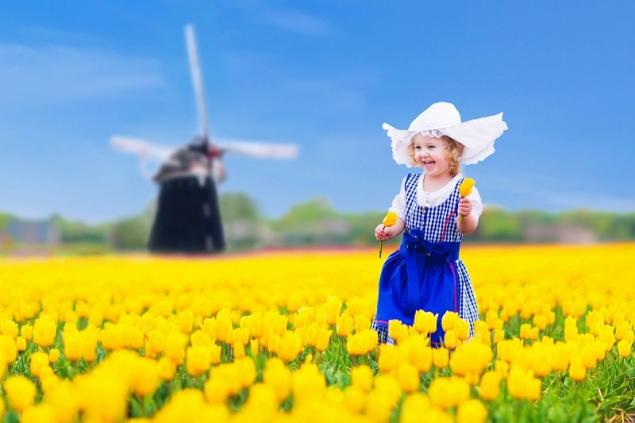
DepositPhotos
After reading this material, most people will have quite a healthy claim that the Netherlands has a completely different level of life and much more opportunities. Yes, it is. But if society has a clearly articulated goal, there will be a desire to defend it. While the domestic mother sacrifices herself and calms down with expensive diapers, she will not receive any new opportunities.
Be sure to share your views on Dutch education in the comments!
The first thing I want to say is that I am beautiful, the second is that I am beautiful. This is how I feel about my body, says Ruslana Pisanka.
What you should know about Alexander Vertinsky






















